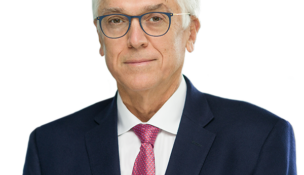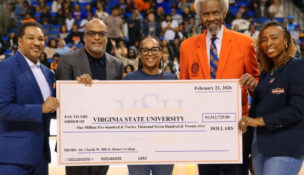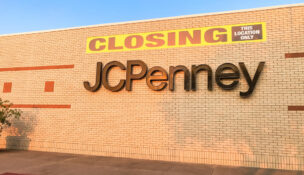Colonial Williamsburg Foundation leader to step down in October
Virginia Business //June 18, 2019//
After five years, the head of the Colonial Williamsburg Foundation plans to bow out.
President and CEO Mitchell B. Reiss is stepping down in October when his contract ends. During his tenure, Reiss led a restructuring of the foundation, which was facing declining revenue and visitors to the Colonial Williamsburg Historic Area. The foundation controls assets worth more than $1 billion, including the 18th-century Colonial America living history attraction as well as museums, lodging and other tourism draws, such as the Robert Trent Jones Sr.-designed Golden Horseshoe Golf Club. The nonprofit is searching for Reiss’ successor and hopes to fill the position later this year.
“When the board hired Mitchell, he entered into a five-year employment contract with the foundation,” Joseph Straw, the foundation’s spokesperson, said in a statement. “That contract ends in October and he has chosen to step down when it expires.”
Reiss is exploring other career options, but isn’t ready to publicly announce his plans, Straw says.
As the foundation’s finances hit perhaps the most dire point in its history, Reiss announced a series of dramatic cost-cutting measures in 2017. Colonial Williamsburg eliminated 71 jobs and outsourced another 262 positions to vendors who took over the attraction’s retail, golf, landscape services and facilities management. At the time Reiss instituted the restructuring, annual visitation to the historic site was half of what it had been 30 years prior. Admissions grew from 574,333 in 2015 to 594,378 in 2017, but decreased to 550,171 in 2018. The organization’s total revenue dropped from almost $148 million in 2016 to $127.3 million in 2017, the most recent year reported, according to the organization’s tax forms.
During this time the foundation also repeatedly dipped into its endowment to offset operating expenses.
“While most nonprofit organizations withdraw 5% annually from their endowment, in 2001 we began to withdraw more than 5%, at times reaching as high as 12%,” Reiss said in 2017. “If we continue at this rate, we could exhaust the endowment available to support our operations, including many related to our core educational mission, in just eight years, and perhaps sooner. That outcome would lead to mission failure.”
In 2016 and 2017, the most recent years reported, the foundation withdrew a total of $136 million from its roughly $700 million endowment, or about 10% per year.
On the plus side, The Colonial Williamsburg Co., which operates the foundation’s lodging and real estate units, broke even for the first time in 2018 and turned a profit for the first time ever in the first quarter of 2019, Straw says.
“Mitchell has worked successfully to help Colonial Williamsburg navigate unprecedented cultural and technological shifts, building a record of solid accomplishment under his tenure,” said Thurston R. Moore, chairman of the foundation’s Board of Trustees. “Among other things, he led us through a difficult but necessary organizational restructuring; improved our guest experience; invested in a diverse and inclusive workforce; and completed fundraising to expand and renovate the Art Museums of Colonial Williamsburg.”
Richard Foster contributed to this report
s

















